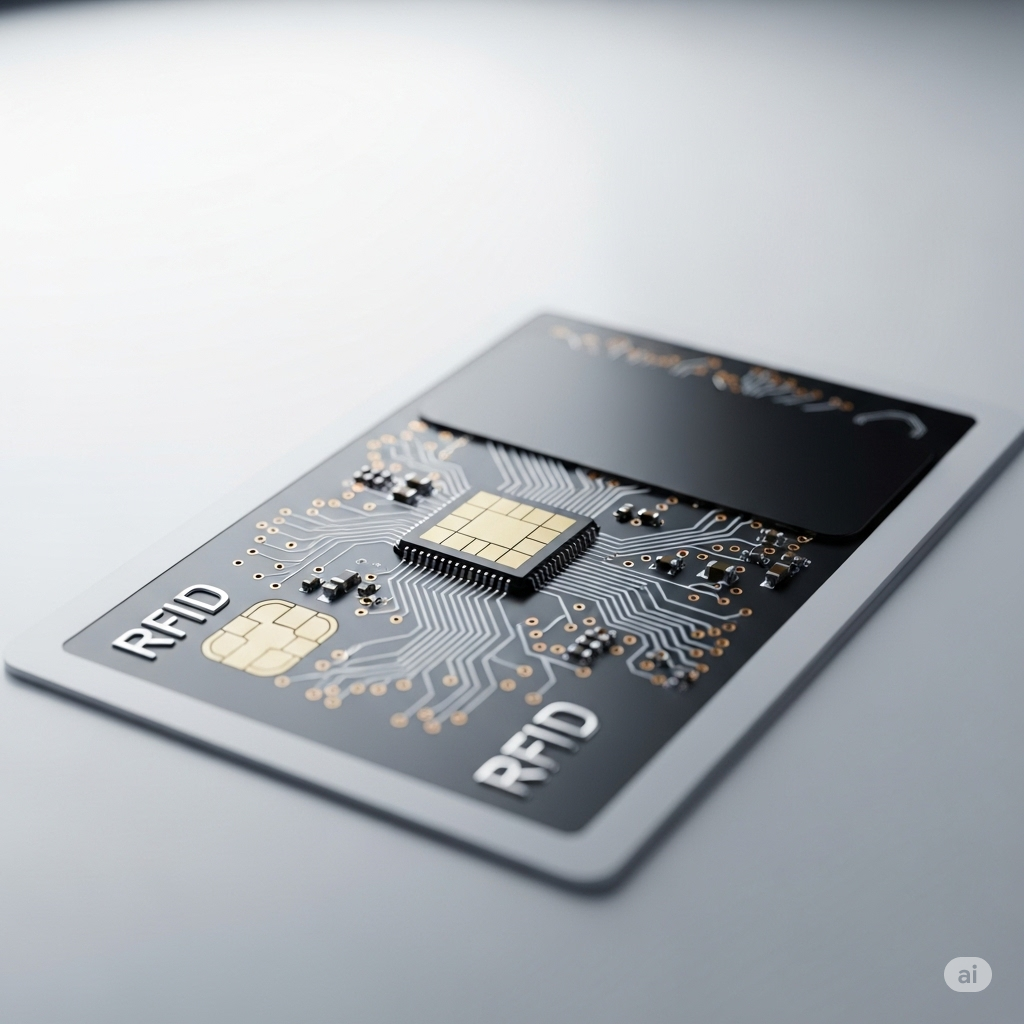How to Choose the Right RFID Card for Your Industry in 2025
In today’s digital-first world, the demand for secure, efficient, and automated identification systems has surged across sectors. From access control in corporate environments to tracking in healthcare and logistics, RFID ID card technology is transforming how we manage identity and information. But with so many RFID options available, how do you choose the right one for your industry?
This guide will walk you through everything you need to know about selecting the most suitable — whether you’re overseeing operations in retail, hospitality, education, or manufacturing. We’ll also highlight how companies like IVYPrints are revolutionizing PVC card printing with tailored, industry-specific solutions.
What is an RFID Card and How Does It Work?
Radio Frequency Identification (RFID) technology uses electromagnetic fields to automatically identify and track tags attached to objects. An contains a small chip and antenna embedded in a plastic or paper card, which communicates with an RFID reader when in proximity.
Types of RFID Cards
There are three main types of RFID cards based on frequency ranges:
- Low-Frequency (LF) RFID Cards (125 – 134 kHz)
Ideal for close-range applications like pet tracking or vehicle immobilizers. - High-Frequency (HF) RFID Cards (13.56 MHz)
Commonly used in hotel key cards, public transportation, and access control. - Ultra-High-Frequency (UHF) RFID Cards (860 – 960 MHz)
Suitable for inventory management, toll collection, and long-range scanning.
Each type has its own unique advantages and limitations depending on the industry.
Why Choosing the Right RFID Card Matters
Selecting the right RFID card isn’t just a technical decision—it affects security, efficiency, and user experience.
Key Industry Factors to Consider
- Operational Environment:
Does the card need to withstand heat, moisture, or rough handling? - Read Range Requirements:
Will users need to scan from several feet away or up close? - Data Storage and Security Needs:
Do you require encryption or simple ID number transmission? - Durability and Material:
PVC RFID cards are robust and reusable, perfect for daily wear and tear. - Customization and Branding:
Your RFID cards can be customized with logos, staff photos, and department colors—especially when working with vendors like IVYPrints who offer premium card personalization services.
Applications of RFID Cards by Industry
Let’s break down how different industries use RFID cards and which specifications fit best.
1. Corporate Offices & Access Control
Corporate offices rely heavily on RFID for secure access. Cards can be encoded to limit entry by role or location. High-frequency cards with secure protocols (like MIFARE DESFire EV2) are ideal.
2. Education Sector
RFID cards with visual customization From tracking student attendance to managing library checkouts, RFID cards can streamline campus operations. Cards printed by providers like IVYPrints allow schools to combine functionality with branding and student photos.
3. Retail & Inventory Management
UHF RFID cards or tags RFID improves inventory visibility and theft prevention. UHF cards provide excellent range and support automated stocktaking in retail chains and warehouses.
4. Healthcare
HF or LF RFID cards Hospitals use RFID for tracking patients, staff, and medication. The cards should be tamper-resistant, support encryption, and be compliant with healthcare privacy standards.
5. Hospitality & Travel
HF RFID cards (hotel keycards, loyalty cards) Hotels and resorts increasingly use RFID to control room access, manage spas, and track guest preferences. Printed RFID cards can double as branded loyalty cards, enhancing the guest experience.
How to Choose a Reliable RFID Card Provider
Why IVYPrints Stands Out
IVYPrints specializes in high-quality PVC and RFID card printing solutions tailored to various sectors. What sets them apart?
- Durable PVC Material: Designed for daily use and high print quality.
- Customizable Designs: Upload your logo, staff details, or preferred color themes.
- Encoding Services: Cards can be shipped pre-programmed to your system.
- Eco-Friendly Options: Options for biodegradable PVC cards.
Whether you need 100 or 10,000 cards, IVYPrints ensures consistency and top-notch finish every time.
Tips for Implementing RFID in Your Business
Introducing RFID into your workflow is not just about the cards—you need a strategy.
Do a Tech Audit First
Evaluate your current systems and determine how RFID will integrate with them. Does your infrastructure support HF or UHF? Are you using compatible readers?
Train Your Team
Introduce your staff to how RFID works, how to use the cards, and what to do in case of issues.
Start Small, Scale Wisely
Test RFID implementation in one department or location before a full-scale rollout. This reduces disruptions and allows optimization.
Common Mistakes to Avoid
Ignoring Card Compatibility
Different RFID frequencies are not interchangeable. Choose the frequency that matches your readers and use case.
Prioritizing Cost Over Quality
Cheap cards often degrade quickly or provide unreliable reads. Opt for trusted providers like IVYPrints to ensure quality.
Overlooking Data Security
RFID systems, especially in sensitive sectors like healthcare or finance, should include encryption and proper access protocols.
Conclusion: Tailoring RFID to Your Industry
There’s no one-size-fits-all solution when it comes to RFID card technology. By understanding your industry’s unique requirements and selecting the right frequency, material, and provider, you can significantly boost efficiency and security. Whether it’s enhancing access control in a tech firm or managing hotel keys for a resort chain, the right RFID card can streamline operations and improve user experience.
Working with reputable suppliers like IVYPrints ensures you get high-quality, customized RFID and PVC ID card solutions that fit your business needs now—and scale for the future.
FAQs
Q1: Are RFID cards safe to use?
Yes, when properly encrypted and managed, RFID cards are secure and widely used across industries for access control and data tracking.
Q2: Can I print on RFID cards?
Absolutely. Providers like IVYPrints offer printable PVC RFID cards that can be customized with text, logos, and images.
Q3: What’s the lifespan of an RFID card?
Depending on usage and quality, RFID cards can last from 1 to 5 years. PVC cards are especially durable.



